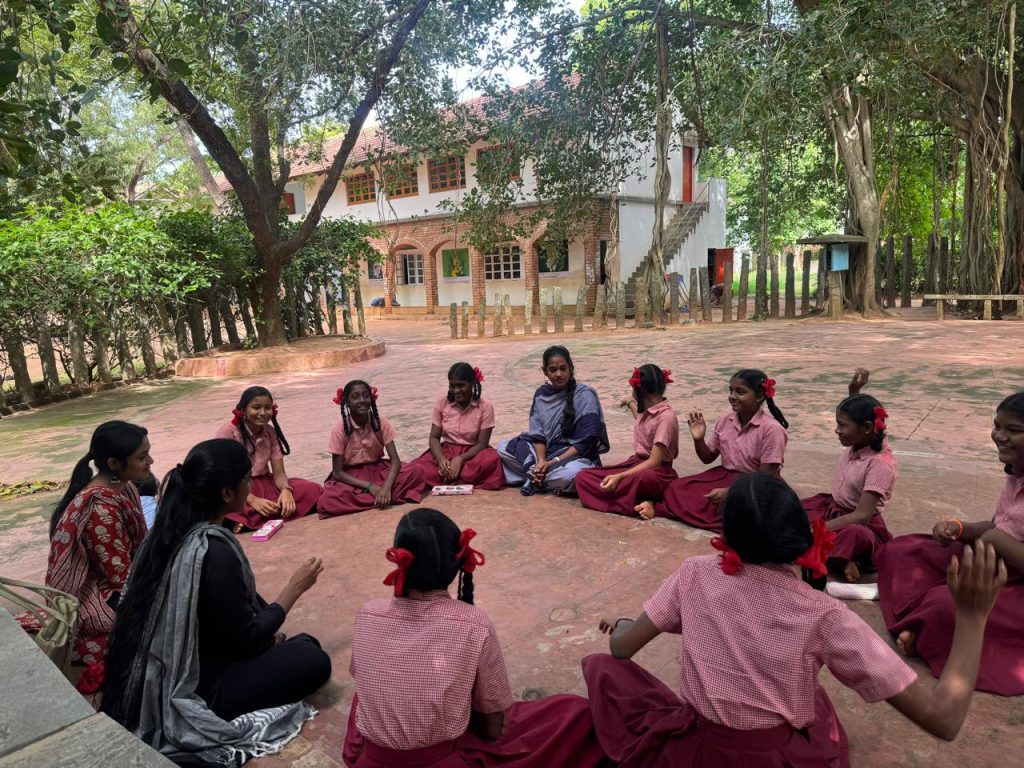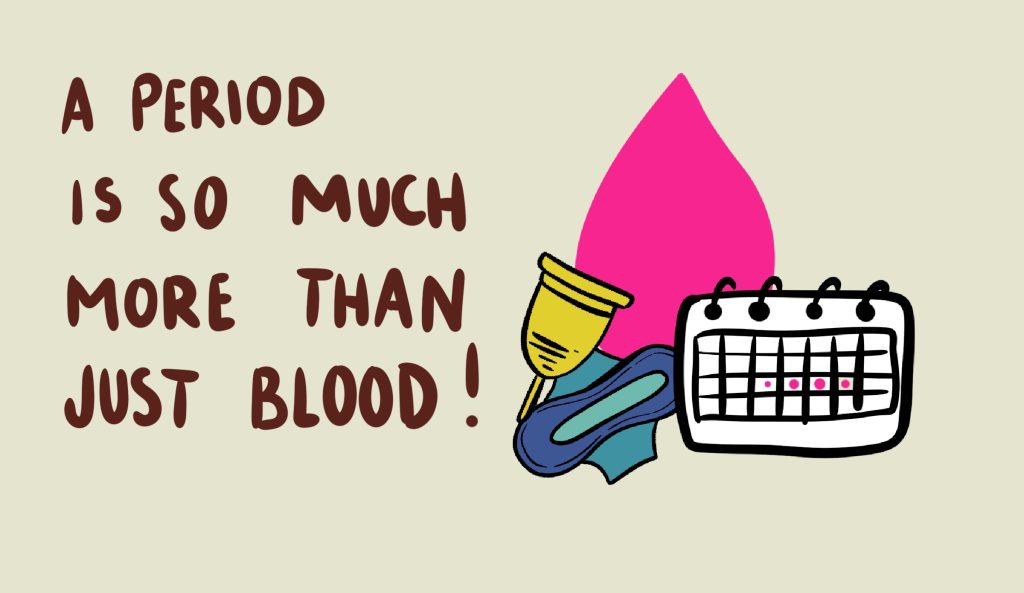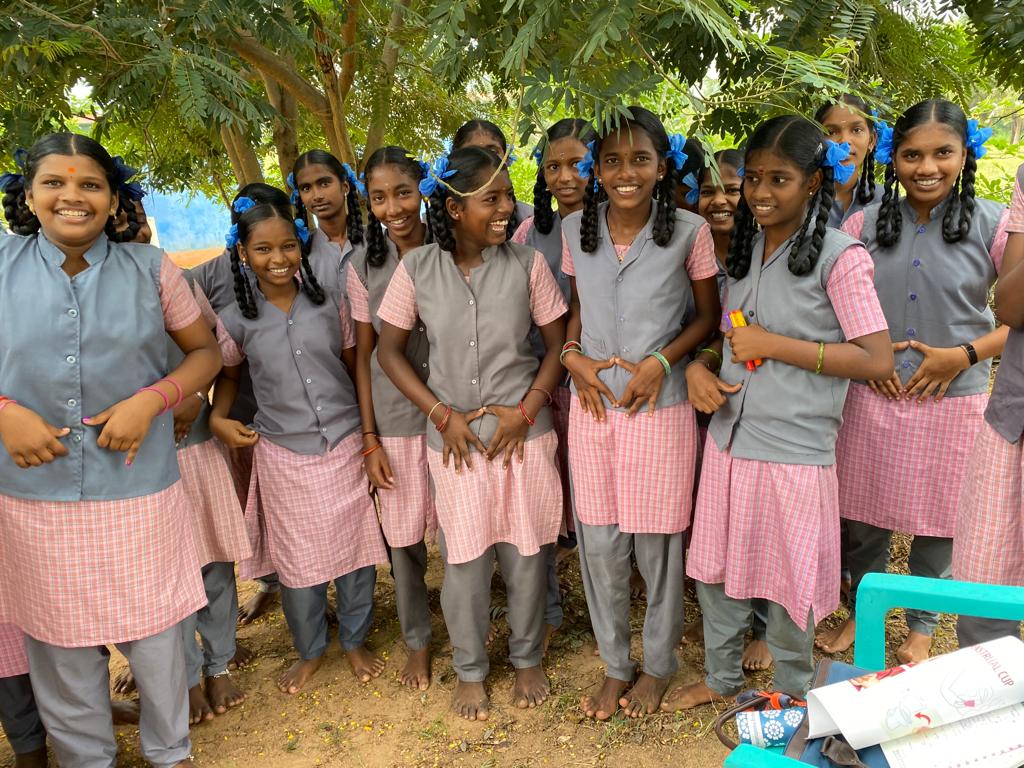India is a melting pot of differences; twenty-nine states, seven union territories, six major religions, twenty two official languages, and dry, desert climates alongside months of monsoon(1). Although existing in vague harmony(2), a kaleidoscope nation like this is full of contradictions, women’s experiences of menstruation being one of them. As a stranger to the subcontinent, my fresh eyes have been widened by Eco Femme’s progressive efforts. The enterprise recognises the nation’s ambiguities, and revalue menstruation as a chance to leak chic in India, rather than take cover.

Due to my research into the impact of Eco Femme’s work, rural Indian women have opened up and revealed the menstrual paradoxes they experience. Some of the study’s participants have emphasised their love of the products that enable them to earn a living, care for their children, and exercise their environmentalism.
“They’re as embracing of their pretty and practical sanitary pads as they are of their monthly bleed – as it’s healthy, they’re happy, and ‘without menstruation women are a waste’(3).”
It is not necessarily true that wombs and blood stains determine womanhood, for example endometriosis suffers and male-to-female transexuals are all marvellously women, in spite of their diverse circumstances(4). Similarly, stomach cramps are painful, and PMS is a killjoy. Yet, those who have the ability to menstruate can take on board these proud and empowered individuals, and opt out of the ‘bad blood’ scenario. Vaginas and sex and moons and eggs are, in general, great.
However, the country’s perplexing culture, of which counters these wonders, prevails as practices of menstruation are examined. The seemingly strong, period-positive partakers exposed the restrictions, the cleansing rituals, the ‘shameful’ biology that confines them; unable to leave the house. Regardless of the 55 years-old interviewee that celebrates her active cycle, and the comparable flow-as-fundamental attitudes in which some women appear to embody, experiences of some cultural customs cannot be overlooked.
Eco Femme have beautifully weaved respect for these traditions whilst shaking-up complacency surrounding menstruation across India – and further afield. With more people fighting for gender equality than ever before, the organisation are one of several expleary enterprises tackling social injustices across the globe, namely in this country full of complexities(5). The enterprise have grabbed onto the optimistic perceptions of menstruation that several women stand for, and have led open discussions surrounding the topic – as well as curating glorious products.
In a country of contradiction, this engagement that makes Eco Femme worthy of a crown.

![]()
by Hannah Whelan
- Census of India (2011). Religion. [Online] [Accessed 7 July]. Available from: http://censusindia.gov.in/Census_And_You/religion.aspx
- See issues in Kashmir, for example. Chintala, P. (2016). Huge disconnect between J&K government, people: Owaisi. In: The Hindu. 13 July. [Online] [Accessed 13 July]. Available from: http://goo.gl/MpDeP2
- Eco Femme (2016). Bad Blood: Eco Femme and the Experiences of Menstruation in India [Research pending]. MSc thesis, University of Amsterdam.
- Moradi, M., Parker, M., Sneddon, A., Lopez, V., & Ellwood, D. (2014). Impact of endometriosis on women’s lives: a qualitative study. In: BMC women’s health, 14(1), p. 123. [Online] [Accessed 7 July]. Available from: http://goo.gl/S7paOQ & Schrock, D., Reid, L., & Boyd, E. M. (2005). Transsexuals’ embodiment of womanhood. In: Gender & Society, 19(3), p. 317-335. [Online] [Accessed 7 July]. Available from: http://goo.gl/L4JsJs
- Fletcher, P. (2016). Obama on feminism and other lessons from the first United State of Women summit. In: The Guardian. 30 June. [Online] [Accessed 7 July]. Available from: https://goo.gl/VbGiDu & See Dutch chocolate entrepreneurs, for example: Tony’s Chocolonely (2016). Home. [Online] [Accessed 29 April]. Available from: http://www.tonyschocolonely.com/us/about-us/frequently-asked-questions/





